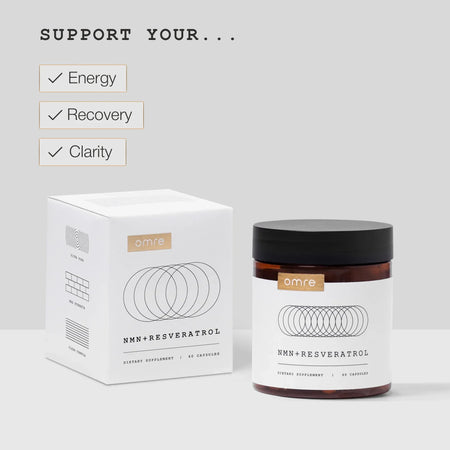NAD, or nicotinamide adenine dinucleotide, is a vital coenzyme found in all living cells. It plays a crucial role in various biological processes, including energy production, DNA repair, and cellular signaling. Understanding how NAD works can shed light on its importance in maintaining health and combating age-related diseases. This article will explore the functions of NAD, its mechanisms, and its implications for human health.
How does NAD work?
NAD works as a coenzyme in redox reactions, which are essential for cellular metabolism. It exists in two forms: NAD+ (oxidized form) and NADH (reduced form). NAD+ accepts electrons during metabolic reactions, which helps convert glucose and other nutrients into energy in the form of ATP (adenosine triphosphate). This process occurs primarily in the mitochondria through pathways like glycolysis and the citric acid cycle. In essence, NAD+ acts as an electron carrier, facilitating the transfer of energy within cells.
Understanding the Role of NAD in Cellular Metabolism
NAD plays a pivotal role in cellular metabolism by participating in redox reactions. When NAD+ accepts electrons, it is reduced to NADH, which can then donate these electrons to the electron transport chain, a series of complexes in the mitochondrial membrane. This transfer of electrons leads to the production of ATP, which is essential for cellular functions. Furthermore, NAD+ is involved in other metabolic pathways, including the breakdown of fatty acids and amino acids, underscoring its importance in energy metabolism.
The Importance of NAD in DNA Repair
Beyond its role in energy production, NAD is crucial for DNA repair mechanisms. It serves as a substrate for enzymes known as poly(ADP-ribose) polymerases (PARPs), which are involved in detecting and repairing DNA damage. When DNA is damaged, PARPs utilize NAD+ to create poly(ADP-ribose) chains that help recruit DNA repair proteins to the site of damage. This process is vital for maintaining genomic stability and preventing mutations that could lead to diseases, including cancer.
NAD and Aging
Research has shown that NAD+ levels decline with age, which may contribute to age-related diseases and metabolic disorders. Low levels of NAD+ are associated with various health issues, including obesity, diabetes, and neurodegenerative diseases. By understanding how NAD functions and its role in cellular processes, scientists are exploring ways to boost NAD+ levels through dietary supplements, lifestyle changes, and potential therapies. This has led to growing interest in NAD+ precursors, such as nicotinamide riboside (NR) and nicotinamide mononucleotide (NMN), which may help replenish NAD+ levels in the body.
Sources of NAD Precursors
To support NAD+ production, individuals can consume foods rich in NAD precursors. These include:
- Meat and Fish: Sources such as chicken, beef, and fish contain nicotinamide, a form of vitamin B3.
- Dairy Products: Milk, cheese, and yogurt are good sources of NAD precursors.
- Green Vegetables: Spinach, kale, and broccoli provide B vitamins that contribute to NAD+ synthesis.
- Nuts and Seeds: Almonds and sunflower seeds are also beneficial for NAD+ levels.
The Future of NAD Research
As research continues, scientists are investigating the therapeutic potential of NAD+ in various health conditions. Clinical trials are exploring the effects of NAD+ boosters on age-related diseases, metabolic health, and cognitive function. By understanding how NAD works and its impact on cellular processes, researchers hope to develop strategies to enhance healthspan and longevity.
Conclusion
In summary, NAD is an essential coenzyme that plays a critical role in energy metabolism, DNA repair, and cellular signaling. Its ability to accept and donate electrons makes it indispensable for ATP production, while its involvement in DNA repair processes highlights its significance in maintaining genomic integrity. With the decline of NAD+ levels associated with aging, exploring ways to boost its availability in the body could have profound implications for health and longevity. As scientific research progresses, the understanding of how NAD works will continue to evolve, opening new avenues for therapeutic interventions.
Stay Sharp, Stay Energized, Stay Ahead
Aging doesn’t have to slow you down. NMN + Resveratrol is your key to sustained energy, sharper focus, and long-term vitality. Whether you're a high performer pushing boundaries, a biohacker optimizing every aspect of life, or a parent looking to keep up with the demands of daily life, this powerful combination fuels your body at the cellular level.
Backed by science and trusted by those who refuse to settle for average aging, NMN + Resveratrol helps you stay ahead—today, tomorrow, and for years to come.
Experience the benefits for yourself. Start your journey to better aging now!
Try NMN + Resveratrol Today!
NMN + RESVERATROL
Cellular NAD+ booster with ultra‑pure NMN and Resveratrol, at research‑backed doses.*
Read more:


